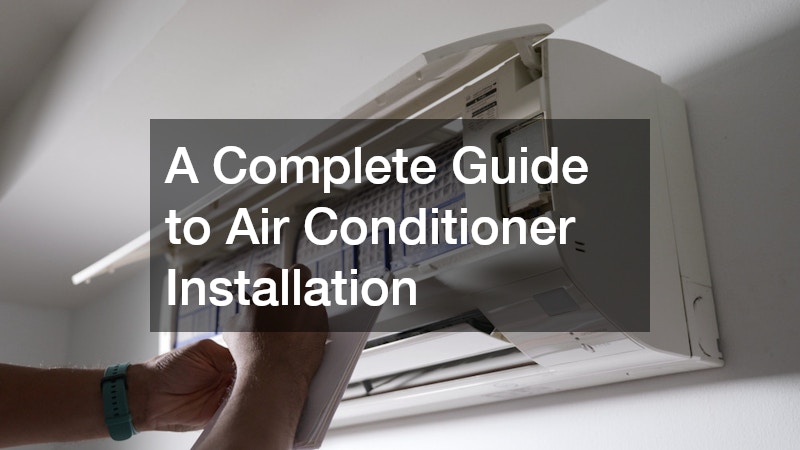In this article, we aim to provide a comprehensive guide to selecting the right air conditioning services for your home needs. We will explore various important factors, frequently asked questions, and expert tips to ensure that you get the best quality control for your heating and cooling systems. Making the right choice impacts comfort, cost efficiency, and long-term reliability. Whether you need local AC repair services or a complete overhaul of your HVAC system, understanding your options will help you make an informed decision.
1. How to Choose the Best Local AC Services for Fast, Reliable Solutions
Choosing the best local AC repair services involves researching the reputation and experience of various service providers. It’s essential to evaluate how quickly they can respond to emergencies and what their customer satisfaction ratings are. Local AC repair services that focus on quality control heating and cooling will ensure that issues are resolved efficiently and permanently.
Asking for recommendations from neighbors and reading online reviews are practical ways to gauge the quality of a local AC repair company. Experienced technicians should be forthcoming about the issues your system faces and offer honest advice. It’s beneficial to choose companies that are well-versed in diverse systems, from older models to the most advanced air conditioner systems.
Price transparency is another crucial factor when selecting a local AC repair service. Obtaining multiple quotes can help you ensure that you’re getting value for your investment. Remember that the cheapest option is not always the best, especially if it compromises the quality of work and future reliability.
2. What Sets Top Companies Apart in Quality and Customer Service

Top AC companies are distinguished by their commitment to quality control heating and cooling, ensuring both industry standards are met and customer satisfaction is achieved. These companies have a track record of reliability, offering comprehensive warranties and guarantees on their work. Excellent customer service is often evident in their responsiveness and willingness to address concerns.
Continuing education and innovation are other markers of a top AC company. They invest in training their staff on the latest advancements in technology to provide the most efficient and environmentally friendly solutions. This not only supports energy-efficient systems but also offers customers potential cost savings on their utility bills.
Investing in a top AC company means you gain access to a wealth of experience and expertise, often accompanied by a range of services that address every aspect of HVAC needs. From local AC repair to full-scale installations, these businesses are equipped to support their customers holistically.
3. Essential Services Every Homeowner Should Know About
AC services encompass a range of tasks that maintain or restore the functionality of your heating and cooling systems. Regular maintenance and inspections are essential in ensuring the longevity and efficiency of your system. AC services may include cleaning, checking refrigerant levels, and replacing filters.
Beyond routine checks, homeowners should also be aware of potential upgrades that can improve system efficiency. Newer technologies may include smart thermostats or ductless systems, which provide precision control and can be particularly energy-efficient. Quality control heating and cooling are integral in these services, ensuring that performance meets expectations.
An essential aspect of AC services is diagnosing and fixing issues before they require more extensive repairs. Early detection of potential problems such as leaks or electrical faults can prevent larger issues and help maintain comfort and safety in your home.
4. A Complete Guide to Air Conditioner Installation

Professional air conditioner installation starts with determining the right system that meets the specific needs of your home efficiently. A consultation with a knowledgeable AC contractor can help you select a unit that fits your budget and performance requirements. Quality control heating and cooling play a crucial role in ensuring optimal setup and operation of your new system.
The installation process involves checking electrical connections, positioning indoor and outdoor units correctly, and testing the system for efficient operation. Proper installation can significantly influence the lifespan and effectiveness of a system. Working with experienced professionals can save you from costly errors and provide peace of mind.
Additionally, professional air conditioner installation includes educating homeowners on system operation and maintenance tips. Understanding how to best utilize and care for the system can enhance its durability and efficiency, offering long-term benefits and comfort.
5. Why Hiring Licensed AC Professional Makes All the Difference
Hiring licensed AC contractors ensures that you receive service from skilled professionals who meet regulatory standards and industry best practices. Their expertise is critical in delivering effective and reliable quality control heating and cooling solutions. Not only do they bring technical knowledge, but their work also comes with accountability through licenses and certifications.
Licensed AC contractors are likely to have comprehensive insurance, providing another layer of security and protection for homeowners. In the event of mishaps, liability falls more comfortably on insured professionals rather than the homeowner. This security is a valuable consideration in your decision-making process.
When you hire a licensed AC contractor, you also benefit from adherence to safety protocols. Professional contractors prioritize safety measures that protect both the home inhabitants and the system during and after installation. This thorough approach provides confidence in the integrity and safety of your heating and cooling solutions.
6. What to Expect During a AC Installation

A professional AC installation begins with a detailed assessment of your home’s cooling needs to determine the most appropriate and effective system. Trained technicians will evaluate space requirements, insulation, and existing ductwork if applicable. This evaluation is vital to ensure quality control heating and cooling during installation.
Next, the installation involves precise placement and alignment of system components, whether it’s an outdoor compressor or indoor air handler. Technicians will ensure all connections are secure and weather sealed where necessary. Expect them to test the system rigorously to affirm its functionality and efficiency.
Upon completion, professional installation typically concludes with a walkthrough by the technician to explain system operations and maintenance tips. Understanding the basics of system management can help homeowners utilize their investment fully and address minor issues promptly.
7. Understanding HVAC: How They Keep Your Home Comfortable
HVAC systems, a combination of heating, ventilation, and air conditioning, work collectively to maintain a comfortable indoor environment. They manage temperature, humidity, and air quality, ensuring a balanced atmosphere regardless of external weather conditions. HVAC systems are integral to quality control heating and cooling through modern technology and precise climate control.
The heating component might include furnaces or heat pumps, while ventilation ensures proper air exchange and circulation to prevent stagnation and pollutant buildup. The air conditioning segment regulates humidity and reduces temperatures during warmer seasons. Together, these components work seamlessly to optimize comfort.
Understanding how these systems interconnect can help homeowners appreciate their investment and maintain system efficiency. Proper care and professional service of these systems improve indoor air quality and contribute to health benefits by preventing mold and maintaining consistent comfort.
8. Questions to Ask Before Hiring an Contractor

Before hiring an HVAC contractor, it’s prudent to inquire about their licenses and certifications to ensure they meet industry standards for quality control heating and cooling. Verify their experience with your type of HVAC system and ask for client testimonials or references for validation of their work quality.
Discuss their approach to problem diagnosis and resolution timelines. Understanding their service protocols and responsiveness to inquiries can set your expectations for future interactions. Transparency about these aspects is vital for customer satisfaction and trust.
Lastly, explore their warranty and service agreement options in detail. A contractor offering comprehensive post-installation support and warranties on labor and parts adds considerable value. This reflects their confidence in their services and commitment to customer satisfaction.
9. Why Working with a Local Company Can Save You Time and Money
Collaborating with a local AC company can offer significant time and cost savings through immediate access to services and personnel who are familiar with regional climate conditions and technical demands. Such companies typically provide prompt responses to service requests, which can be crucial during peak seasons. Local AC companies also tend to build long-term relationships with their customers, often providing loyalty benefits or discounts.
Another advantage of dealing with a local AC company is the potential for reduced service costs, as transportation and logistics are often more economical for nearby locales. These companies predominantly employ staff who understand the specific environmental demands of the area, optimizing systems for local conditions. Quality control heating and cooling are often prioritized through regional adaptations and practices.
Working with local experts also supports community businesses and fosters local economic growth. This relationship can extend benefits to clients, from better service rates to prioritized scheduling, all contributing to a more seamless and beneficial customer experience.
10. Exploring the Benefits of a Modern Air System
A modern air conditioner system brings numerous advantages, including enhanced energy efficiency, quieter operation, and better air quality management. These systems are often equipped with smart technology, allowing for remote control and monitoring that enables users to optimize performance and conserve energy. The integration of quality control heating and cooling features ensures durability and operational excellence.
Upgrading to a contemporary system can lead to significant savings on energy bills due to higher SEER (Seasonal Energy Efficiency Ratio) ratings and improved operational efficiency. It helps homeowners to substantially reduce their carbon footprint, promoting an environmentally responsible choice. Advanced filtration systems in modern units mean improved indoor air quality, reducing allergens and pollutants.
Investing in a modern air conditioner system provides long-term benefits, such as fewer service requirements and longer operational life. The initial investment, although significant, often pays off in reduced operating costs and enhanced comfort, making it a wise solution for those focused on sustainability and reliability.
Selecting the appropriate AC services is paramount for sustained comfort, optimal energy usage, and dependable operation of your home’s cooling system. A thorough understanding of critical factors, including stringent quality control measures, comprehensive cost considerations, the importance of energy-efficient solutions, and the benefits of integrating the latest technological advancements, empowers you to make well-informed choices. Neglecting these aspects can lead to recurring problems, higher utility bills, and a shortened lifespan for your air conditioning unit.
Quality control extends beyond the initial installation. It encompasses the expertise and certifications of the technicians, the quality of the materials and components used, and adherence to industry best practices and safety standards. Choosing a provider with a proven track record of meticulous workmanship and rigorous quality checks minimizes the risk of future breakdowns and ensures the system operates at peak performance. Don’t hesitate to inquire about licensing, insurance, and customer testimonials to gauge a service provider’s commitment to quality.
Cost is undoubtedly a significant consideration, but it’s crucial to look beyond the initial price tag. Lower upfront costs may be tempting, but they can sometimes indicate compromised quality, less efficient equipment, or hidden fees. A comprehensive cost analysis should include not only the installation or repair charges but also the long-term operational expenses, such as electricity consumption and potential future repairs. Investing in a slightly more expensive, high-quality, and energy-efficient system can yield substantial savings over its lifespan. Obtain detailed quotes from multiple providers, clearly outlining all costs involved, including labor, parts, and any potential additional charges.
Energy efficiency is increasingly important, both for reducing your environmental footprint and lowering your monthly utility bills. Modern AC systems incorporate various energy-saving technologies, such as higher SEER (Seasonal Energy Efficiency Ratio) ratings, variable-speed compressors, and smart thermostats. Choosing an energy-efficient model that is properly sized for your home can significantly reduce energy consumption and contribute to a more sustainable living environment. Discuss energy efficiency options with your service provider and explore potential rebates or incentives offered for installing high-efficiency equipment.
Technological advancements in the HVAC industry are continually improving the performance, efficiency, and convenience of air conditioning systems. Features like smart controls, zoning capabilities, air purification technologies, and enhanced diagnostics can provide greater comfort, personalized climate control, improved indoor air quality, and easier maintenance. Staying informed about these advancements allows you to select a system that best meets your specific needs and preferences. Consult with knowledgeable experts about the latest technologies and how they can benefit your home.



